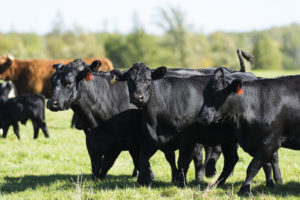 Preparing Livestock For Hurricanes: Before the Hurricane – Plan Ahead!
Preparing Livestock For Hurricanes: Before the Hurricane – Plan Ahead!
Before hurricane season begins…
- Make sure all animals have current immunizations and horses have a current coggins test. Keep a record with you.
- Identify your livestock – A permanent hot iron or freeze brand on cattle and horses registered with county clerk is best.
- Horses can also be permanently identified with microchips or tattoos.
More options…
- Take a picture of your animal with a family member in the photo as proof of ownership.
- Purchase fetlock ID bands for horses and place them on both front feet.
- Using small animal trimmers & clip the owner’s phone number on necks of horses.
- Braid a waterproof luggage tag with medication and owner information into the horse’s tail or mane.
Prepare “Disaster Kit”
- Have basic veterinary supplies (antiseptic, bandages, wrap, antibiotics)
- Handling equipment such as halters, leads, and cages.
- Sanitation supplies
- Water, feed, buckets
If not evacuating livestock…
- Remove animals from closed barns as damage to barn by wind could injure or kill them.
- Most damage to buildings, pens, and animals comes from wind and flying objects so the ability to protect them in advance from these dangers greatly reduces injury.
- Turn large livestock out into large pastures with solid shelter or tall brush on high ground.
Preparing Youth Livestock Projects
- Show Broilers, Turkeys, and Swine: Don’t attempt to evacuate. The stress of travel is more on these animals than leaving them at home with a three to four day supply of feed and water. Have a generator on hand.
- Show Horses, Beef Cattle, Goats, Rabbits, and Lambs: Evacuate these animals. They will handle the stress of travel better than swine and poultry. Travel with water and food keeping animals comfortable. It’s best to travel at night with your show animals.
Evacuating…
- Animals should be evacuated no less than 72 hours before storm makes landfall.
- Before getting on the road, check trailers to make sure they are good in condition.
- When loading trailers, don’t overcrowd animals – take water supply with you.
Where to go…
- A list of livestock shelters is available by dialing 2-1-1
- Know in advance where you and your livestock go.
After the hurricane…
- As soon as it is safe, livestock owners should check on the condition of their animals or have someone do it for you if you are away. Be prepared to take feed, hay, water, basic livestock first aid supplies, wire cutters, and other tools.
- As soon as possible, move the animals out of any flooded areas to dry or covered locations.
- Check for injuries and render first aid as needed.
- Serious injuries will require veterinary attention.
- Give stressed animals clean feed or hay and water. Provide animals that have not had access to feed for one or more days a little feed the first few days. Gradually increase it over a week to full feed.
- Do not give wet or moldy feed to any animal. Wet hay, as long as it is not moldy, is good filler. Remember to check the hay for fire ants. Dry feed will be best for all classes of livestock.
- High water will cause snakes to seek higher ground as well. Rattlesnakes, water moccasins, and copperheads are the principle snakes affecting livestock since they can strike and envenom quickly.
- Water quality will also be an issue, especially for livestock in populated areas that drink from streams, bayous, and tanks that fill with rain runoff. This water could be contaminated with salt water from storm surges, petroleum products, dead animals, and fecal material from flooded septic tanks and sewer systems. If possible, water livestock from cleaner water sources until these can be evaluated.
- If there are dead animals on your property, dispose of them properly if possible. Cover with tarps to avoid predators or use lime if available. Dead animals cannot be burned without permission of the Texas Commission on Environmental Quality. This might be waived in case of a natural disaster.
Source: Texas A&M System AgriLife Extension Service




